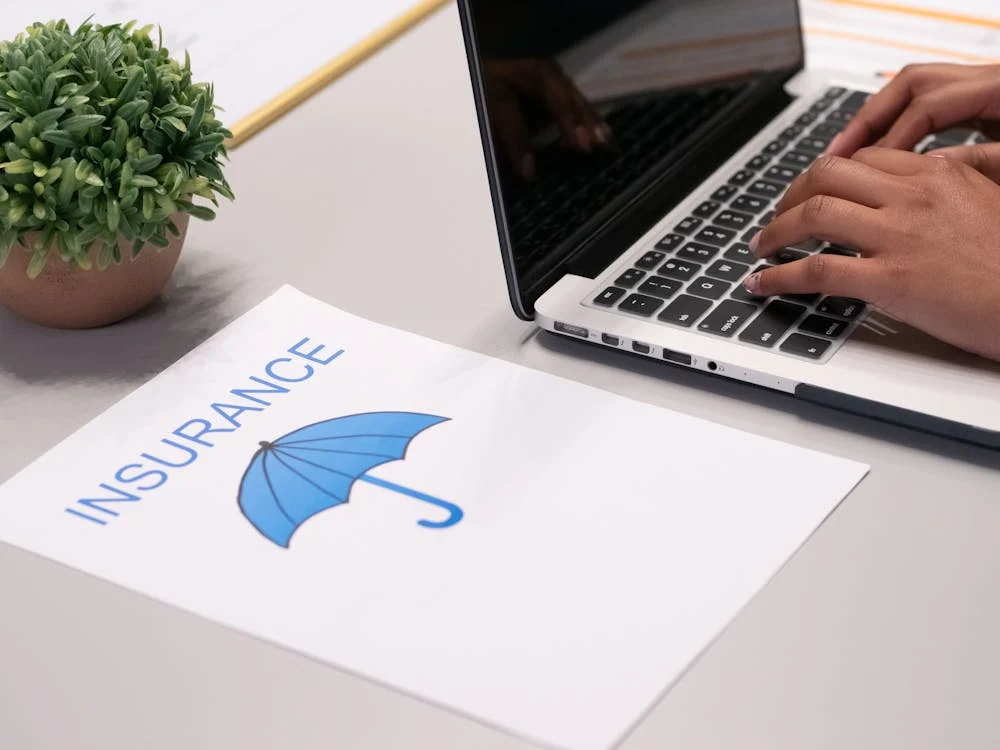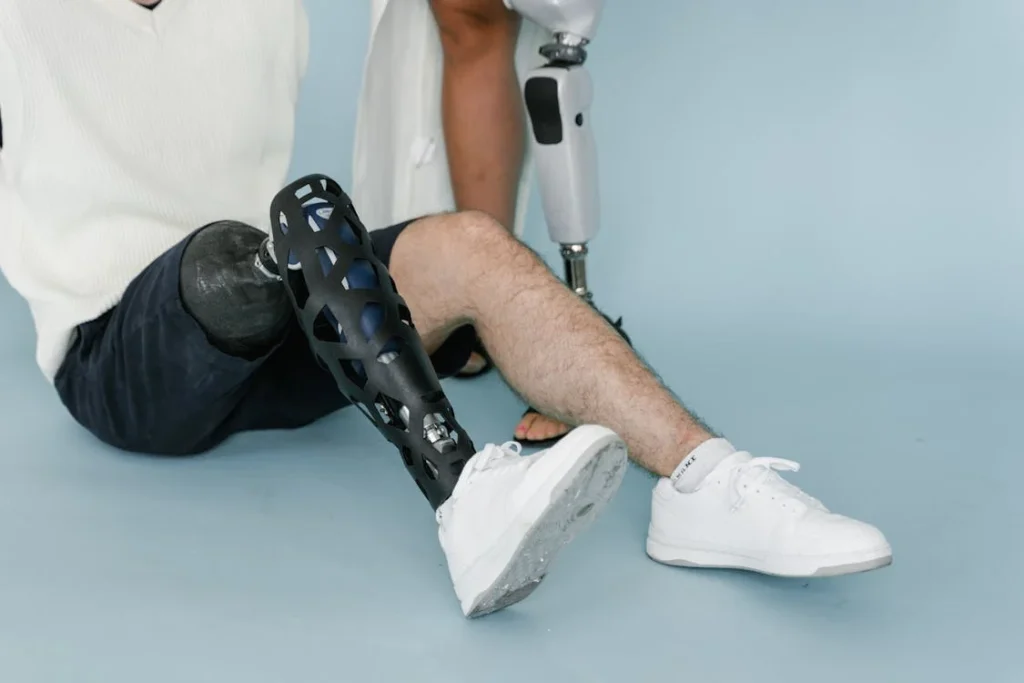Living with limb loss can be challenging, but prosthetic devices can restore independence and confidence. However, the cost of prosthetics can be high, making insurance coverage a crucial factor in accessibility. While government schemes and NGOs provide some support, private health insurance can play a major role in covering prosthetic expenses.
In India, many private insurance companies offer plans that include prosthetic coverage, but the details can vary. Some policies cover only accidental limb loss, while others provide broader coverage. Understanding the fine print is essential to making an informed decision.

Understanding Prosthetic Coverage in Private Health Insurance
Prosthetic limbs are life-changing, but their cost can be a significant concern for many individuals. The good news is that private health insurance in India has started recognizing the need for prosthetic coverage.
However, not all policies provide the same benefits. Some plans include prosthetic expenses under hospitalization coverage, while others treat them as add-ons or exclude them altogether.
How Insurance Companies Classify Prosthetic Expenses
Private insurers categorize prosthetic expenses in different ways. Some treat them as a medical necessity, especially when the limb loss is due to an accident or a covered surgery.
In such cases, the insurance provider may cover a portion or the full cost of the prosthetic device, depending on the policy terms.
However, if a person is born with a limb difference or loses a limb due to a condition like diabetes or vascular disease, coverage may not be as straightforward.
Many policies consider prosthetic limbs as durable medical equipment (DME), which means they fall under a category of medical aids rather than direct treatment.
When prosthetics are classified this way, insurers may cover only a part of the cost or impose specific conditions such as prior approval, medical necessity, or a waiting period before reimbursement.
Understanding how an insurer classifies prosthetic expenses is crucial when selecting a policy.
The Role of Hospitalization and Surgery Coverage
Most health insurance policies in India focus on hospitalization and surgical expenses. If a person undergoes amputation due to an accident, injury, or illness, the insurance provider generally covers the cost of hospitalization, surgery, and immediate post-surgical care.
In some cases, the first prosthetic limb after surgery is included in the hospitalization benefit. However, replacements, upgrades, or maintenance of the prosthetic device may not be covered.
For instance, if someone has an accident and undergoes an amputation, their policy might cover the initial fitting of a prosthetic limb. But if they need a new prosthetic hand a few years later, the insurance might not cover the replacement.
This is why reading the policy document carefully and checking renewal benefits is essential.
Comprehensive Plans vs. Add-On Benefits
Not all insurance plans automatically include prosthetic coverage. Some comprehensive health insurance policies cover prosthetic devices under their standard benefits, while others require policyholders to opt for an additional rider or add-on.
Riders are optional benefits that can be purchased by paying an extra premium. These can provide extended coverage for medical equipment, rehabilitation, and prosthetic devices.
Choosing a plan with built-in prosthetic coverage is often a better option than relying on riders. Standalone health insurance policies with dedicated prosthetic benefits tend to offer higher claim amounts, fewer restrictions, and better long-term support.
However, add-on covers can be useful if someone already has a health policy but needs additional protection for prosthetic expenses.
Claim Process and Documentation
Filing an insurance claim for a prosthetic limb involves multiple steps, and the process can vary between insurance companies. Typically, insurers require a detailed medical report from a doctor stating the necessity of a prosthetic limb.
Some policies demand pre-authorization before purchasing the prosthetic device, while others allow reimbursement after the expense is incurred.
Along with the doctor’s prescription, other essential documents include hospital records, amputation details, invoices, and proof of purchase from an authorized medical provider.
Submitting complete documentation is crucial for hassle-free claim approval. If a policyholder faces issues with a claim, they can escalate the matter through the insurance company’s grievance redressal system or approach the Insurance Ombudsman for resolution.
Private Insurance Companies in India That Cover Prosthetic Expenses
India’s private health insurance market has grown significantly in recent years, with many companies offering coverage for prosthetic expenses under select policies.
However, the level of coverage, conditions, and eligibility criteria vary between insurers. Understanding which companies provide comprehensive prosthetic coverage can help individuals choose the right policy for their needs.
Major Insurance Providers Offering Prosthetic Coverage
Several leading private insurers in India offer health plans that include prosthetic limb expenses under specific conditions. Some of the most well-known companies include HDFC Ergo, ICICI Lombard, Max Bupa (now Niva Bupa), Star Health, and Tata AIG.
While these insurers provide prosthetic coverage in some form, the specifics depend on the policy type, the cause of limb loss, and the insured person’s medical history.
HDFC Ergo, for instance, offers health insurance plans that cover prosthetic limbs as part of hospitalization and post-surgery rehabilitation expenses.
However, the policyholder must meet specific criteria, such as requiring the prosthetic due to an accident or a covered surgical procedure.
ICICI Lombard has similar provisions, where prosthetic coverage is available under accidental injury benefits, ensuring that individuals who suffer limb loss due to accidents receive financial assistance for their prosthetic needs.
Max Bupa (now Niva Bupa) offers some of the most comprehensive policies, with certain plans covering prosthetic expenses not just for accidents but also for illnesses leading to amputation.
This can be particularly helpful for individuals with conditions like diabetes or vascular disease. Star Health, known for its extensive critical illness and disability-friendly policies, provides prosthetic coverage under select plans, often as part of post-hospitalization benefits.
Tata AIG, like other insurers, includes prosthetic limb expenses in its accidental disability cover, ensuring that policyholders who experience sudden limb loss can get financial support for their prosthetic requirements.
What to Look for in a Prosthetic Coverage Policy
Not all insurance policies treat prosthetic limbs the same way. Some only cover the first prosthetic limb after surgery, while others provide continued support for maintenance, repairs, and replacements.
When selecting a policy, it is essential to check for key factors such as claim limits, exclusions, waiting periods, and renewal benefits.
One crucial aspect is whether the policy covers only accidental amputations or includes medical conditions like diabetes-related amputations.
Many insurers strictly limit prosthetic benefits to accident-related claims, leaving those with medical conditions to pay out of pocket. Another important factor is whether the policy provides one-time coverage or allows claims for replacements over time.
Prosthetic limbs, especially bionic ones, require maintenance and upgrades, so a policy that covers replacements can offer long-term financial relief.
Waiting periods can also affect coverage eligibility. Some insurance providers impose waiting periods before covering prosthetic limbs, meaning the insured person must hold the policy for a certain duration before they can claim benefits.
Additionally, policies with high claim limits for prosthetic devices are preferable, as they reduce the financial burden of purchasing advanced prosthetic solutions.
How to Maximize Insurance Benefits for Prosthetic Expenses
To make the most of an insurance policy’s prosthetic coverage, policyholders should thoroughly understand their policy terms and proactively manage claims.
Consulting with an insurance agent before purchasing a plan can help clarify coverage details, exclusions, and claim procedures.
It is also beneficial to seek medical advice and obtain a detailed prescription from a doctor specifying the necessity of a prosthetic limb, as insurers often require this documentation for claim approval.
In cases where prosthetic expenses are not fully covered, policyholders can explore additional financial aid options such as employer-sponsored health benefits, crowdfunding, or government schemes that provide support for prosthetic users.
Additionally, some insurers offer top-up plans or riders that extend prosthetic coverage, which can be a worthwhile investment for individuals who anticipate long-term prosthetic needs.

Challenges and Limitations of Prosthetic Coverage in Private Insurance
While some private insurance companies in India provide coverage for prosthetic expenses, the process of claiming these benefits is not always straightforward.
Many policyholders face difficulties due to policy exclusions, insufficient claim limits, and complicated claim approval procedures. Understanding these challenges can help individuals prepare better and avoid unexpected financial burdens.
Common Exclusions and Policy Limitations
One of the biggest challenges in getting prosthetic expenses covered is the presence of exclusions in insurance policies. Many insurers only provide coverage for prosthetic limbs if the amputation results from an accident.
If the limb loss is due to a medical condition such as diabetes, vascular disease, or cancer, the claim may be denied. This exclusion leaves many individuals without financial assistance for their prosthetic needs.
Another common limitation is that some policies only cover basic prosthetic limbs and not advanced bionic or myoelectric prosthetics.
These high-tech solutions, like Robobionics’ Grippy™ bionic hand, offer superior functionality and an enhanced sense of touch, but they can be expensive.
Many insurance companies set a cap on prosthetic claims, reimbursing only a fraction of the actual cost. For example, if a prosthetic limb costs ₹2,00,000, the insurance provider may cover only ₹50,000, leaving the policyholder to pay the remaining amount out of pocket.
The Claim Process Can Be Complex
The claim process for prosthetic limbs is often lengthy and involves extensive paperwork. Many insurers require pre-authorization before purchasing a prosthetic device, meaning the policyholder must obtain approval from the insurance company before proceeding with the purchase.
This process can take weeks and may delay the fitting of the prosthetic limb.
Additionally, insurance companies often require detailed medical records, including a doctor’s prescription, hospital discharge summaries, and proof of medical necessity.
If any documents are missing or incomplete, the claim may be rejected or delayed. This bureaucratic process can be overwhelming, especially for individuals who are already dealing with the physical and emotional challenges of limb loss.
Limited Coverage for Repairs and Replacements
Prosthetic limbs are not a one-time investment; they require regular maintenance and, in some cases, replacements every few years. Unfortunately, most insurance policies in India do not cover the cost of repairs, maintenance, or replacement prosthetics.
Once a policyholder receives an initial prosthetic limb, any future replacements may not be covered under the same policy. This can be a significant financial burden, especially for individuals using advanced prosthetics that require periodic adjustments or upgrades.
Some insurance companies do offer coverage for replacements, but only under strict conditions. For example, a replacement prosthetic limb may only be covered if it is medically necessary due to significant wear and tear or functional deterioration.
Policyholders must provide proof that the prosthetic is no longer functional to be eligible for a replacement claim. However, this process can be complicated and time-consuming, making it difficult for individuals to access the prosthetic solutions they need.
The Need for Greater Awareness and Better Policies
One of the key reasons for these limitations is the lack of awareness about prosthetic needs among insurance providers and policymakers. In many cases, insurance companies do not fully understand the long-term medical requirements of individuals with limb loss.
This results in policies that are restrictive and do not provide comprehensive support for prosthetic users.
To address this issue, advocacy efforts are needed to push for better insurance coverage for prosthetic devices in India.
Organizations working in the disability sector, prosthetic manufacturers like Robobionics, and healthcare professionals can play a crucial role in educating insurers about the importance of prosthetic coverage.
By highlighting the impact of prosthetics on quality of life and independence, we can encourage insurance companies to create more inclusive policies that cater to the real needs of amputees.

Steps to Secure the Best Insurance Coverage for Prosthetic Expenses
Given the challenges associated with prosthetic coverage in private health insurance, taking proactive steps can help individuals maximize their benefits and minimize out-of-pocket expenses.
Choosing the right insurance plan, understanding the claim process, and exploring additional funding sources can make a significant difference in obtaining financial support for prosthetic limbs.
Research and Choose the Right Health Insurance Policy
The first and most important step is selecting a health insurance policy that explicitly covers prosthetic expenses.
Many individuals purchase general health insurance without verifying whether prosthetic limbs are included, only to realize later that they are excluded or covered under restrictive conditions.
Before purchasing a policy, it is essential to thoroughly review the terms and conditions, specifically looking for coverage related to prosthetic devices, accidental disability benefits, and hospitalization expenses that include prosthetic fittings.
Speaking with an insurance agent or company representative can provide clarity on what is covered. It is also helpful to check whether the policy covers only the initial prosthetic limb or includes replacements and repairs.
Some insurers may offer extended coverage through riders or add-ons, which, although requiring an extra premium, can be highly beneficial in the long run.
Keep Medical Records and Documentation Ready
To ensure a smooth claim process, individuals should maintain all necessary medical records and prescriptions related to their prosthetic needs.
Insurance companies require detailed documentation, including medical reports, amputation records, doctor’s recommendations, and hospital discharge summaries. Having these documents readily available can speed up the claim approval process.
In cases where pre-authorization is required, it is advisable to begin the process as early as possible. This involves submitting a request to the insurance company along with supporting medical documents before purchasing the prosthetic limb.
Waiting for approval can take time, so starting the process in advance can help avoid delays in receiving the prosthetic device.
Understand the Claim Process and Follow Up Regularly
Each insurance provider has its own claim process, which can vary in complexity. Some insurers allow cashless claims, where the insurance company directly pays the prosthetic supplier or hospital.
Others operate on a reimbursement basis, requiring the policyholder to pay for the prosthetic limb first and then submit bills for reimbursement.
Understanding how the insurer handles claims and what documents are required can prevent unnecessary confusion and delays.
It is also important to follow up regularly with the insurance company after submitting a claim. Many claims are delayed due to pending verifications or missing documents.
Staying in touch with the insurer, providing any additional details they request, and ensuring all forms are correctly filled out can increase the chances of a successful claim.
Explore Alternative Funding Sources
If insurance coverage is insufficient or unavailable, individuals can explore other financial assistance options. Some employers provide health benefits that include prosthetic coverage, so checking with an employer’s human resources department can be beneficial.
Additionally, government schemes and non-governmental organizations (NGOs) in India offer support for prosthetic users, either by subsidizing costs or providing direct financial aid.
Crowdfunding platforms have also become a popular way to raise funds for prosthetic expenses. Many individuals turn to online fundraising campaigns to gather financial support from friends, family, and the broader community.
While insurance remains the best long-term solution, alternative funding sources can provide immediate relief for those in need.
Advocacy for Better Prosthetic Coverage
While some private insurers in India have started covering prosthetic expenses, there is still a long way to go in ensuring comprehensive coverage for all individuals with limb loss.
Advocating for better policies and raising awareness about the importance of prosthetic limbs in improving quality of life can push insurance companies to expand their coverage options.
As a company committed to making prosthetics accessible and affordable, Robobionics supports efforts to improve insurance policies for prosthetic users.
We believe that no one should be denied the opportunity to regain mobility and independence due to financial constraints.
If you or a loved one are considering a prosthetic limb, we encourage you to explore your insurance options and take the necessary steps to secure the best possible coverage.

The Role of Government Regulations in Prosthetic Coverage
While private insurance companies set their own policies, government regulations play a crucial role in shaping the coverage landscape.
In India, the Insurance Regulatory and Development Authority of India (IRDAI) oversees health insurance policies, ensuring they comply with national healthcare standards.
However, there is no universal mandate requiring insurers to cover prosthetic expenses comprehensively. This gap leaves many individuals with limb loss struggling to afford high-quality prosthetic solutions.
Some government-backed health schemes, such as the Ayushman Bharat Pradhan Mantri Jan Arogya Yojana (AB-PMJAY), provide financial assistance for prosthetic limbs, but these are primarily targeted at low-income individuals.
Middle-class and upper-middle-class individuals often have to rely on private insurance, where prosthetic coverage remains inconsistent.
Encouraging regulatory changes to make prosthetic coverage a standard feature in health insurance plans could significantly improve accessibility for millions of people in need.
India can take inspiration from global insurance models where prosthetic coverage is an essential part of health insurance. Countries like the U.S. and Germany have specific mandates requiring insurers to provide prosthetic benefits as part of comprehensive health policies.
If similar standards were adopted in India, it would help bridge the gap between medical necessity and financial accessibility.
The Future of Prosthetic Insurance in India
The demand for prosthetic limbs is growing in India, driven by advancements in technology and increasing awareness of rehabilitation options.
As more people seek high-quality prosthetic solutions like Robobionics’ Grippy™ bionic hand, the need for better insurance coverage becomes even more urgent.
In the coming years, we can expect insurance companies to revise their policies in response to market demand and advocacy efforts.
With advancements in healthcare technology and the rise of specialized prosthetic providers, insurers will need to expand their coverage options to remain competitive.
This could mean the introduction of new plans specifically designed for individuals with limb loss, offering comprehensive coverage for prosthetic fittings, replacements, and repairs.
Additionally, the inclusion of gamified rehabilitation programs in insurance policies could further enhance the prosthetic experience.
Rehabilitation plays a vital role in helping users adapt to prosthetic limbs, and insurers that recognize this as part of their coverage could improve patient outcomes while reducing long-term healthcare costs.

Real-Life Experiences: Challenges and Success Stories of Prosthetic Users in India
Understanding how insurance coverage (or the lack of it) impacts real people can provide valuable insights into the current state of prosthetic insurance in India.
While some individuals have successfully claimed insurance benefits for their prosthetic limbs, many have faced difficulties due to policy exclusions, low reimbursement amounts, and lengthy approval processes.
Struggles Faced by Prosthetic Users
Amit Sharma, a 32-year-old IT professional from Mumbai, lost his leg in a road accident. His employer-provided health insurance covered his hospitalization and surgery, but when it came to getting a prosthetic limb, he faced unexpected hurdles.
His insurance company denied coverage, stating that the policy only included expenses related to hospitalization and not post-hospitalization medical devices.
Left with no other option, Amit had to take a personal loan to afford a high-quality prosthetic limb. His experience highlights how vague policy terms can lead to financial stress for prosthetic users.
Similarly, Priya Nair, a 28-year-old teacher from Kerala, was born with a limb difference and required a prosthetic hand to improve her daily functionality.
She assumed her private health insurance would help cover the cost, but she soon discovered that her policy only covered prosthetic limbs for accidental injuries, not congenital conditions.
Since she didn’t qualify for government disability benefits due to her middle-class background, she had to rely on crowdfunding to raise money for her prosthetic hand.
Success Stories: When Insurance Works
Despite these challenges, some individuals have managed to secure insurance coverage for their prosthetics with careful planning and persistence.
Rajesh Verma, a 45-year-old businessman from Delhi, lost his right arm due to complications from diabetes. Knowing that many insurers exclude prosthetic coverage for medical conditions, he worked closely with an insurance advisor to find a comprehensive health plan that covered prosthetic limbs as part of post-surgical rehabilitation.
Thanks to his proactive approach, he was able to get a partial reimbursement for his Grippy™ bionic hand from Robobionics. His case demonstrates that with the right information and expert guidance, insurance benefits can be maximized.

Conclusion
Access to prosthetic limbs can be life-changing, but the cost remains a major barrier for many individuals in India. While some private insurance companies offer coverage for prosthetic expenses, the terms are often restrictive, leaving many policyholders struggling with out-of-pocket costs. Understanding how insurers classify prosthetic expenses, choosing the right policy, and proactively managing claims can help maximize benefits.
The need for better insurance coverage is clear. Advocacy efforts, policy reforms, and greater awareness can push insurers to create more inclusive plans that support prosthetic users beyond just initial fittings. As technology advances and demand increases, insurers will need to adapt, ensuring that people who rely on prosthetic limbs receive the financial support they deserve.
At Robobionics, we are committed to making prosthetics more accessible and affordable. If you or a loved one need guidance on prosthetic solutions, including exploring insurance options, we are here to help. Book a free demo of Grippy™ today and take the first step toward a more independent future!



